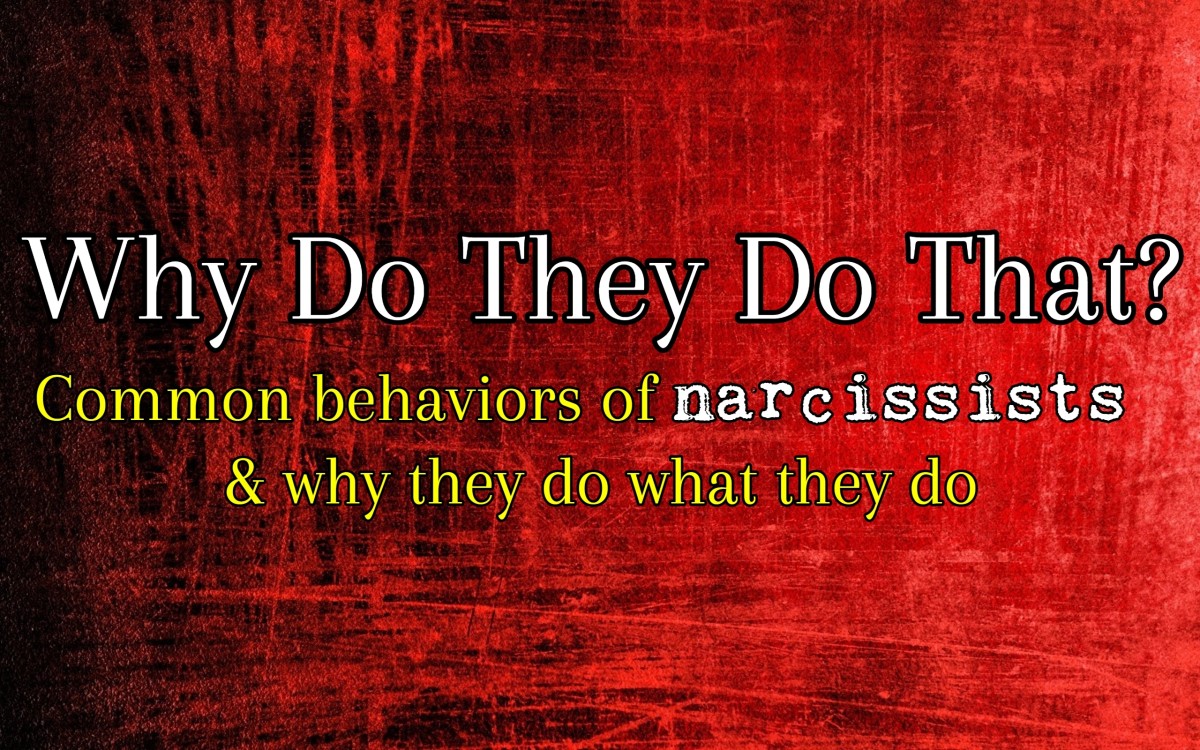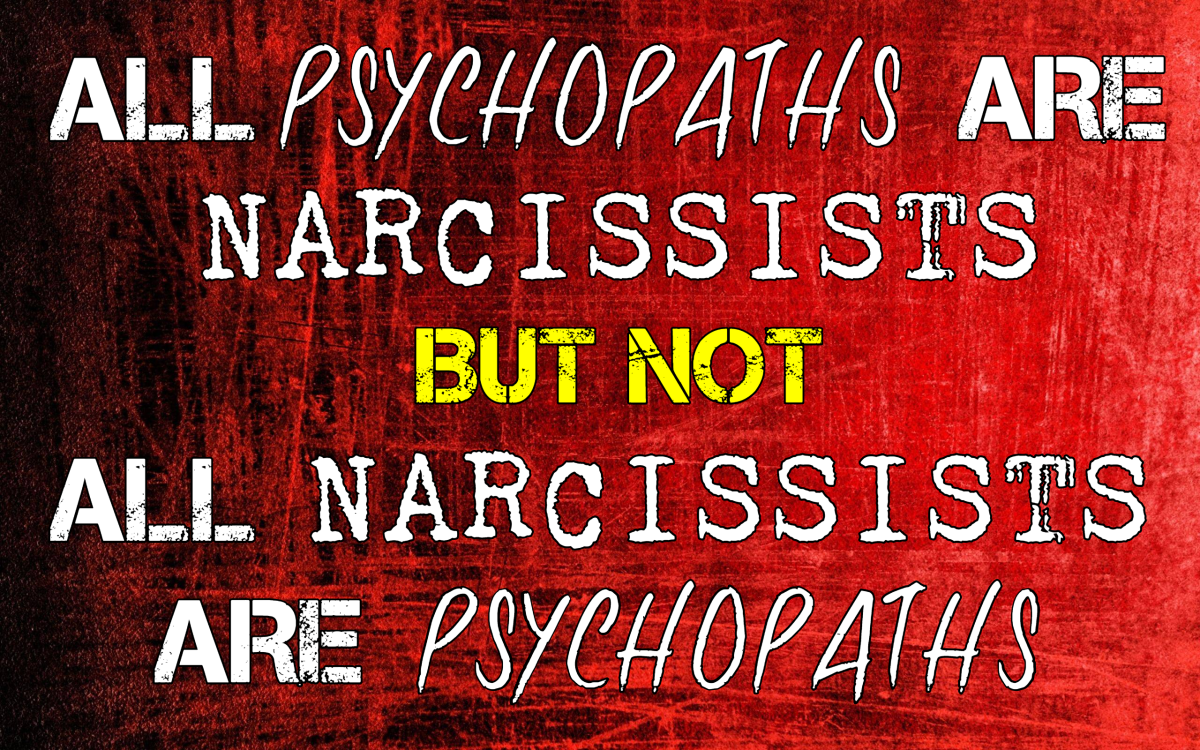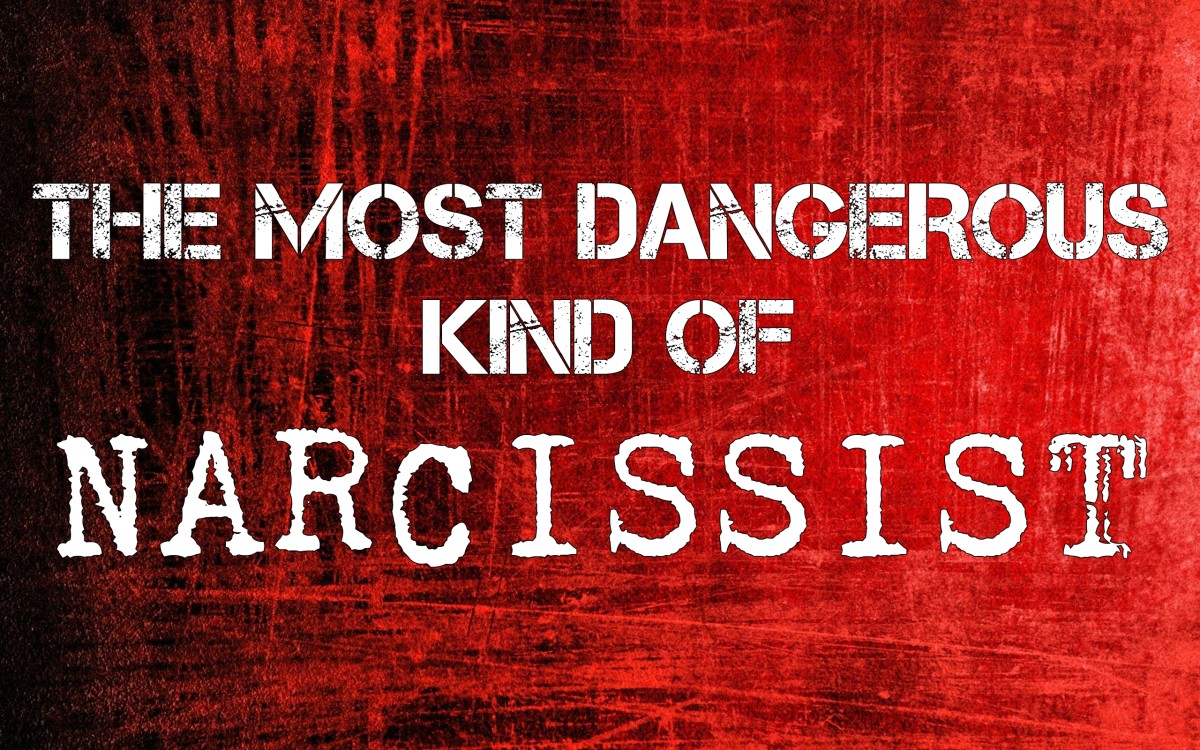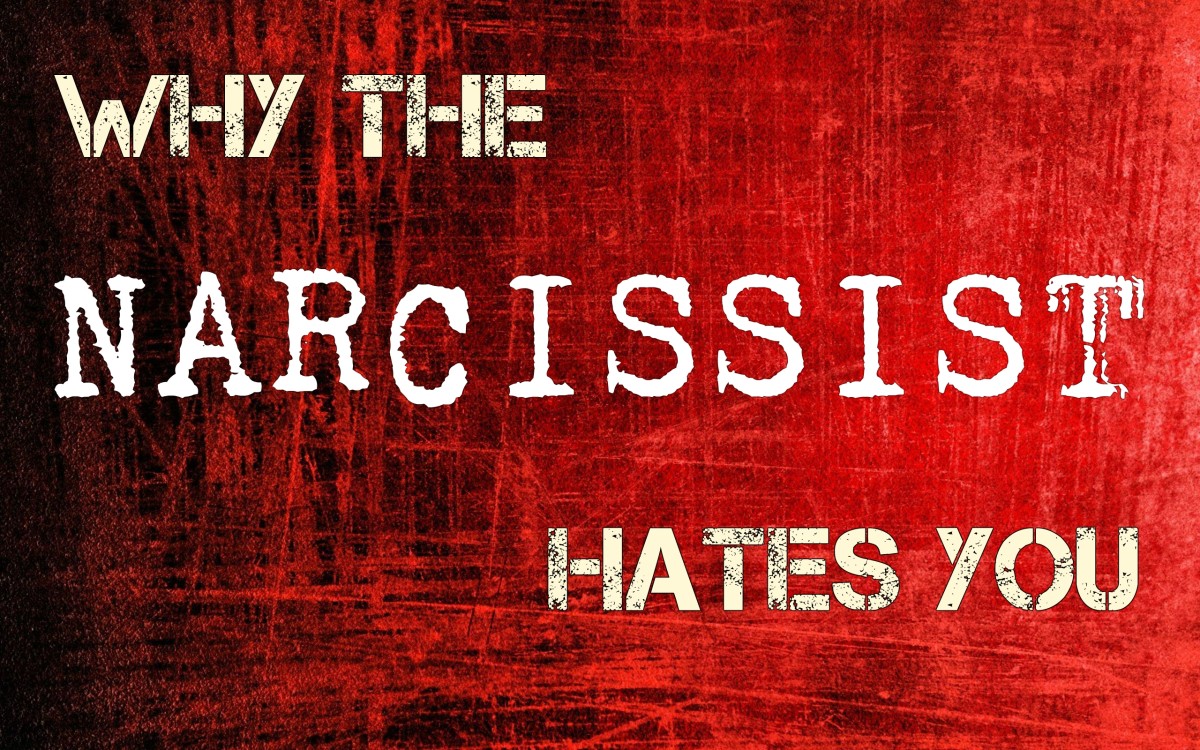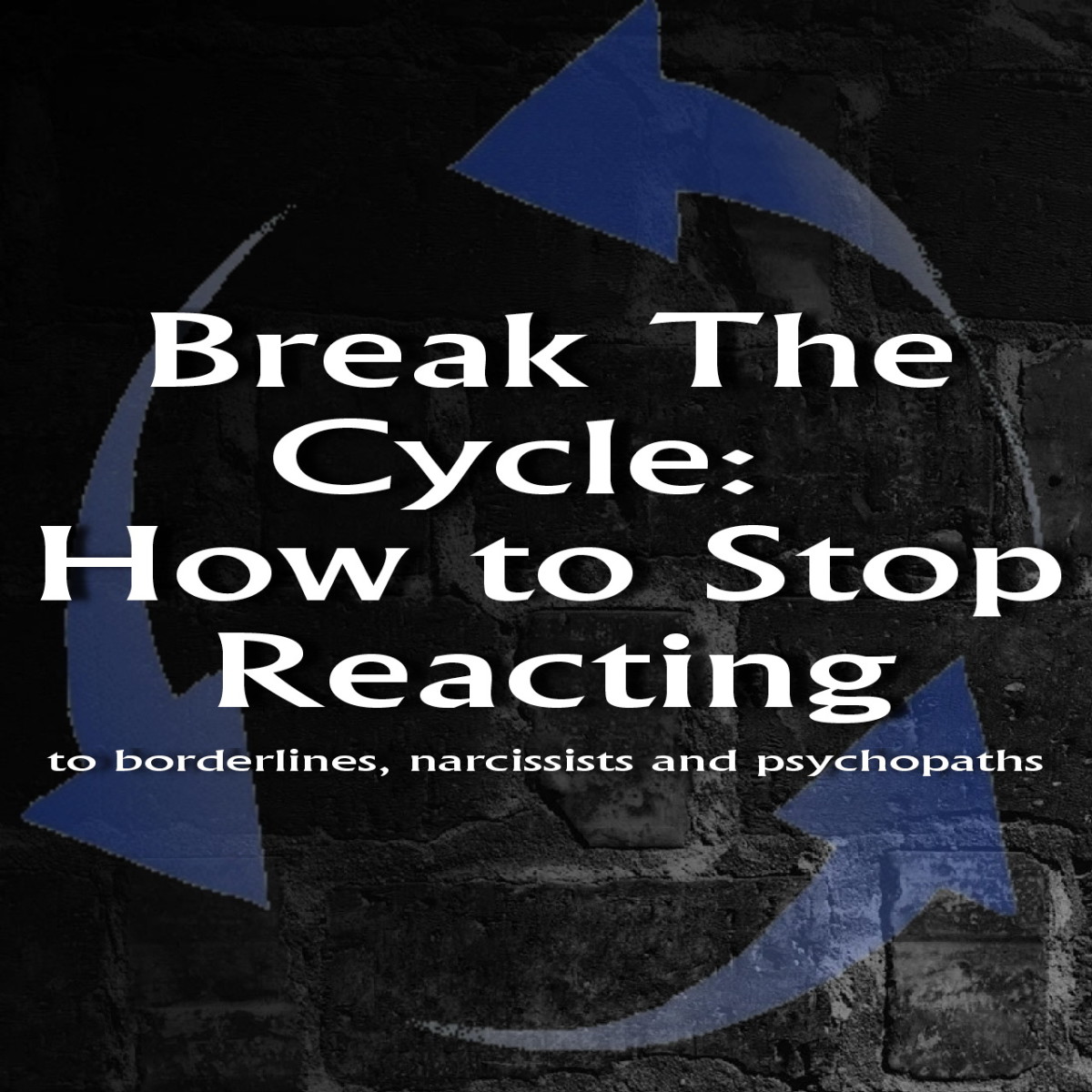- HubPages»
- Health»
- Mental Health»
- Personality Disorders
Are Narcissists & Psychopaths Evil?

In today's society, it is very common to hear the term "evil" thrown around, but what does it really mean? If you ask five different people, you'd likely get five different definitions. For the purposes of this discussion, we are going to use "evil" as both a noun and an adjective. For example, we would say that a demon is evil in both senses of the word. A demon engages in evil behavior, a demon is an evil being. A demon therefore does and is evil. The word both describes them and defines them.
Psychopaths and pathological narcissists often engage in evil behavior, but are they evil beings? Can people be evil?
Evil in The Real World
The word "evil" used to conjure up visions of devils and demons. Now, it usually brings to mind a more human breed of evil. More than one psychologist has flat-out stated that some people are just evil. They are born evil and they stay that way until they die. Nothing will change them or make them better, largely in part because they don't want to be better. "Evil" is the only way to describe a person whom psychology cannot explain.
Jeffrey Dahmer is one such example. There were no terrible incidents of abuse in his childhood, no severe head injuries... His brain was examined after his death and found to be perfectly normal. There is no real scientific explanation for Damher's behavior at all. He was a mystery, psychologically-speaking - to science and even to himself. Dahmer stated on more than one occasion that he did not know why he was the way he was, or what made him that way. Narcissists and psychopaths are not usually overflowing with personal insight, but it's rare for anybody (even a narcissist) to have absolutely no idea why they did something. He was able to offer no explanation at all.
There are some murderers whose eventual behavior can be, if not predicted, at least foreseen. We can look at a history of abuse, abandonment and neglect and say, "I can see how this person could have become a killer." Dahmer does not fit into this mold. All things considered, he should not have become a serial killer. But he did. Why?
Nobody knows. Dahmer is not the only example of this phenomenon, of course. He is a better-known example, and his atrocities are common knowledge but he is not the only example by far. So how does this happen?
There could be two explanations for this phenomenon, one scientific and one spiritual. Science defines evil as the absence of something, and spirituality defines evil as the presence of something.
Science
If we are defining evil as the absence of humanity, as science is wont to do, then we could explore the idea that because psychopaths and narcissists are largely empty inside, this empty space must be filled up with stimulation. As they are also very damaged individuals, both pathological narcissists and psychopaths are consumed with the concept of power. Many of them were severely abused as children and the idea of having power is very important to them, as they seek to counter a lifetime of feeling like helpless victims. They were taught that the way to have power is to hurt other people. Therefore, the idea or process of achieving power is very important to the type of stimulation they will seek. When the innate cruelty of the narcissist and psychopath is added to the mix, you have a very dangerous individual on your hands. According to this definition, psychopaths and pathological narcissists are evil because they lack humanity. They lack many things, in fact: empathy, a conscience, insight...
This theory is mostly sound as far as it goes, but for the people who do not have histories of abuse, it simply does not make sense. We can easily see how most narcissists and psychopaths are created. It is understandable that someone who is abused would spend a lifetime trying to get over it or striking back against it any way they could, and it is understandable that constantly hurting or humiliating a child will create an adult who is very angry and has no empathy toward other living things. It is therefore correct to assume that it is both nature and nurture which generally create the psychopath and the narcissist: without the "perfect storm" of both environment and predisposition, people generally do not become psychopathic or pathologically narcissistic. What about the others, though? The ones who do not seem to have been created, but born that way? How do we explain that? These people do exist and we don't understand why.
Spirituality
If we are defining evil as a supernatural presence, as spirituality is wont to do, then we could explore the idea that because psychopaths and narcissists are largely empty inside, something malevolent simply "moves in" to the empty space and begins exerting influence. The narcissist and the psychopath have malfunctioning defense mechanisms and are inherently weak; they would be an ideal target for a malevolent squatter. They are also less capable of insight and very susceptible to distorted perception, flattery and appeals to vanity. This can make them easy to manipulate or trick, another thing which flags them as ideal targets. Lastly, most narcissists and psychopaths are disproportionately preoccupied with power. This often results in dabbling in demonology and similar things, making them more likely than others to blatantly invite a dark energy into their lives. A person with no absence within them may not be affected by "messing around" with something like that, but the psychopath and narcissist are far more susceptible.
The spiritual theory of presence, though perhaps unlikely to many, would seem to explain a few things that science cannot, including the curious phenomenon of psychopathic children.
The Born Psychopath
Science does not allow the labeling of these children; they cannot be considered psychopaths until they are adults. This has no bearing on reality, however. They are psychopaths and they appear to be psychopaths since birth. It's important to note here that there is no history of abuse with these children. Studies show that the parents of these "cold children" (as they are called) are as involved and loving as the parents of normally-functioning children, but the cold child does not respond as the normally-functioning child does. The cold child does not recognize or seem to care about the love he is being shown. It does not interest him. He displays sustained rages, continual aggression, calculated violence and calculated cruelty - even at four and five years of age. He does not fear consequences or social ramifications ("If I'm a mean person, others won't like me"), he is remorseless and he lacks empathy completely.
We could argue that children of that age don't necessarily understand empathy, and most people would argue that. However, the behavior of these particular children says differently. Calculated violence and cruelty display an active, conscious intent to cause harm. This means the child understands their actions are hurtful - and that being hurtful is the goal. This is both an acknowledgment and a denial of empathy: the child understands empathy and chooses to reject it in favor of causing harm. Why? Because though he apparently understands empathy, he obviously does not feel it.
These children have no emotional empathy, but as they mature, they develop the ability to simulate interest in people’s feelings; a sort of cognitive empathy. They can say what other people feel and recognize it after a fashion; they just don’t care or feel it. They understand intellectually that people have feelings, but that is as far as it goes. Other people's feelings have absolutely zero value or meaning to them. This is identical to the way adult narcissists and psychopaths behave. The manipulative and calculating behavior seen in these children generally far exceeds what a child their age should be capable of engaging in, as well.
There are many scientific theories for why these children exist at all, most involving hormones or genetics, but as of yet none have panned out. The current theories do not explain why some of these children do such terrible things while others don't, however, and certainly, hormones and genes do not even come close to explaining how a child under 10 years old is able to reason and calculate as if they are an adult.
Perhaps science is just not going to be able to explain that.
Science vs. Spirituality?
If, as we said, science defines evil as the absence of something, and spirituality defines evil as the presence of something, this would seem to put the two theories at odds. But does it? Something can only establish a presence in an already-existing absence. This means that the spiritual theory actually fits in with the scientific one perfectly, and it's quite a bit older than its scientific counterpart. In order for something to fill a vessel, the vessel must be empty. You cannot pour more water into a full bucket. The scientific community generally stops short of considering a presence of any kind, but it acknowledges that evil does exist and admits that evil cannot be explained by science - at least currently.
Perhaps it is a mixture of the two, rather than one or the other. The "nature vs. nurture" debate raged for years before both sides gradually came to the realization that both nature and nurture contribute almost equally to any psychological situation. There are more things in the universe than can be explained or even experienced, and science readily admits this as well. It is not such a hard leap then, to theorize that perhaps in this absence that exists in the narcissist and the psychopath, something else might come to be.
Regardless of which theory one subscribes to, it can be said that according to science, the narcissist and the psychopath are indeed evil.

